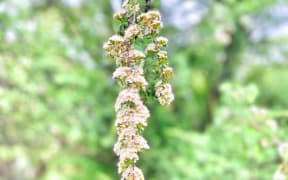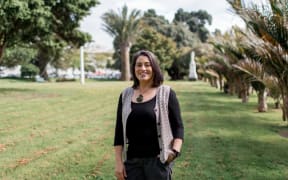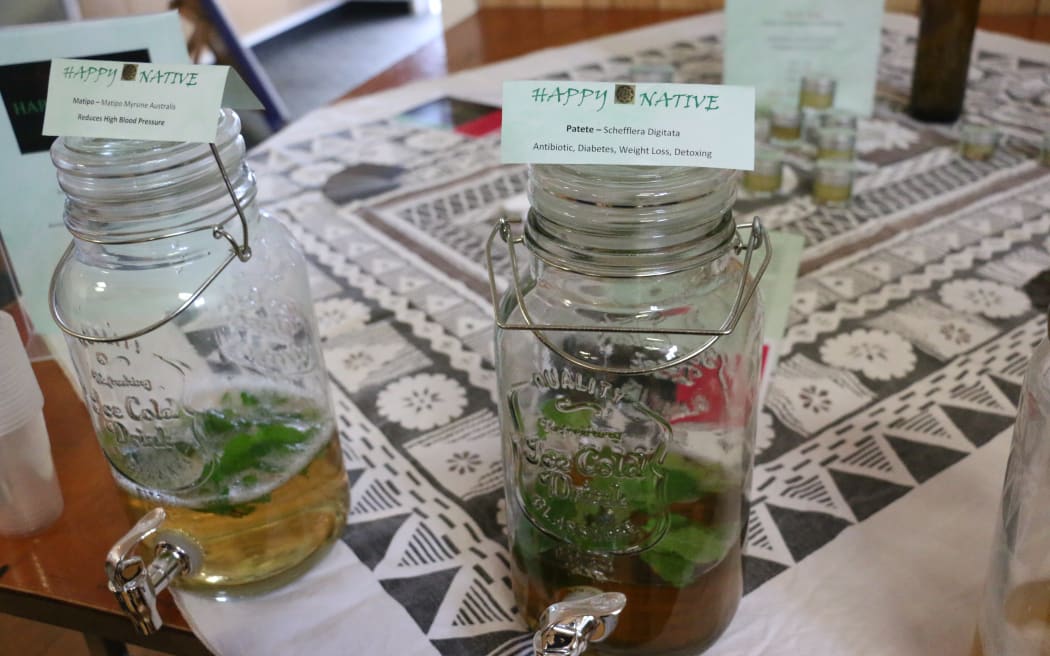
Rongoā Māori (Tonics made from native plants) Photo: RNZ/Justine Murray
Work is underway to create a system that better protects rongoā Māori in law, but practitioners of traditional Māori medicine are worried it will cause more harm than good.
Donna Kerridge is a lifelong practitioner of rongoā, and a strong advocate for how it can work in tandem with western medicine.
She uses plants such as kawakawa to treat wounds or brews it into a tea to settle things like stomach pain.
For the last 10 years she has been trying to get the Ministry of Health to protect and enable rongoā Māori.
She is currently unable to make claims about the benefits of her products, so reforms are needed, she said.
"The Medicines Act is outdated, it's biased in favour of western medicine above all other forms of health and well-being that are available to the citizens of Aotearoa. Urgent reform is definitely required."
The government is doing that, exploring how rongoā might be protected in legislation.
Associate health minister Peeni Henare said there was a Treaty obligation to protect rongoā Māori, but there was also an obligation to ensure health products were safe and effective.
He said officials were exploring how rongoā Māori would be affected by the Therapeutic Products Bill, currently before Parliament.
"What we want to be able to do is give the rongoā community the opportunity to design this particular pathway for themselves, to make sure that we can do that in the best interests of making sure we protect rongoā Māori, but of course those who practice and those who use it," he said.
That's a far cry from previous legislation, like the Tohunga Suppression Act and the Quackery Prevention Act, which nearly wiped out rongoā Māori, forcing it underground.
The Therapeutic Products Bill aims to ensure products are safe, but it will also regulate how products are made, tested, promoted and exported.
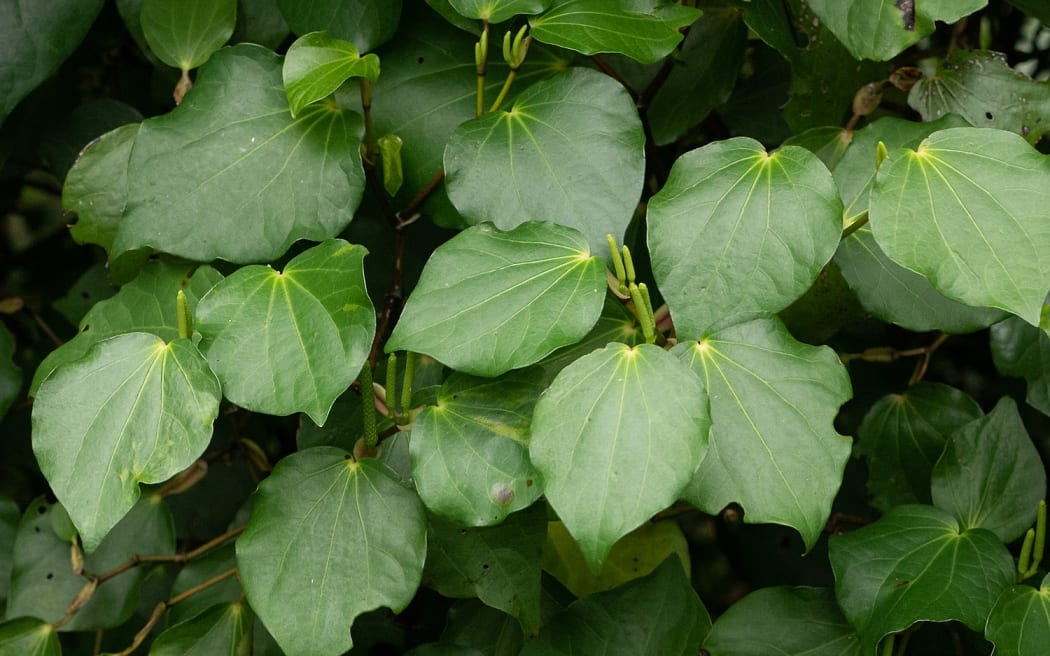
Kawakawa leaves are used to treat a number of ailments. Photo:
Canterbury University health researcher Annabel Ahuriri-Driscoll said some practitioners were worried it could overreach into traditional practice, with unintended consequences.
"One of the key things that came through in some of the research we did for the Ministry of Health was this dilemma of maintaining the integrity of rongoā as a cultural practice, as a taonga, but also trying to reap the benefits of integrating it within mainstream."
Dr Ahuriri-Driscoll says a balance needs to be struck, where rongoā Māori is recognised without the Crown taking control of a taonga.
"I guess if we think that these things might happen in accordance with that principle of partnership then that's very positive. But I think the concern is I just don't know that legislation is able to be flexible enough enough to accommodate our tikanga in the way that we would hope."
Rongoā Māori is growing in popularity, and there hasn't been a single health and safety complaint about rongoā Māori in the past two years.
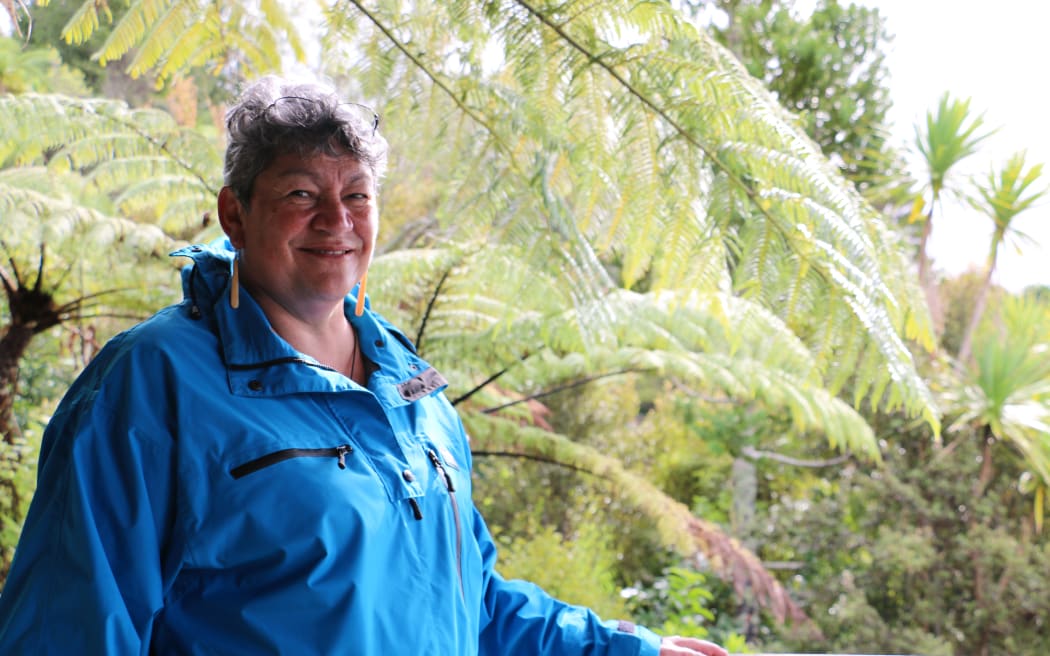
Donna Kerridge Photo: RNZ/Justine Murray
Donna Kerridge is questioning the Crown's ability to regulate rongoā Māori.
"If the Crown tries to regulate rongoā Māori my question is where is the expertise within the Crown to do so and to do so safely and in the interests of its Treaty partner and in the interest of the public of New Zealand."
"You know rongoā Māori is already regulated, it's regulated by tikanga Māori, and that has worked fine for more than 700 years," she said.
Peeni Henare said rongoā practitioners will have a significant voice in any reforms, and he's seeing opportunity to expand the use of rongoā.
He said the health ministry will be carrying out extensive consultation from February, before providing advice in April.
